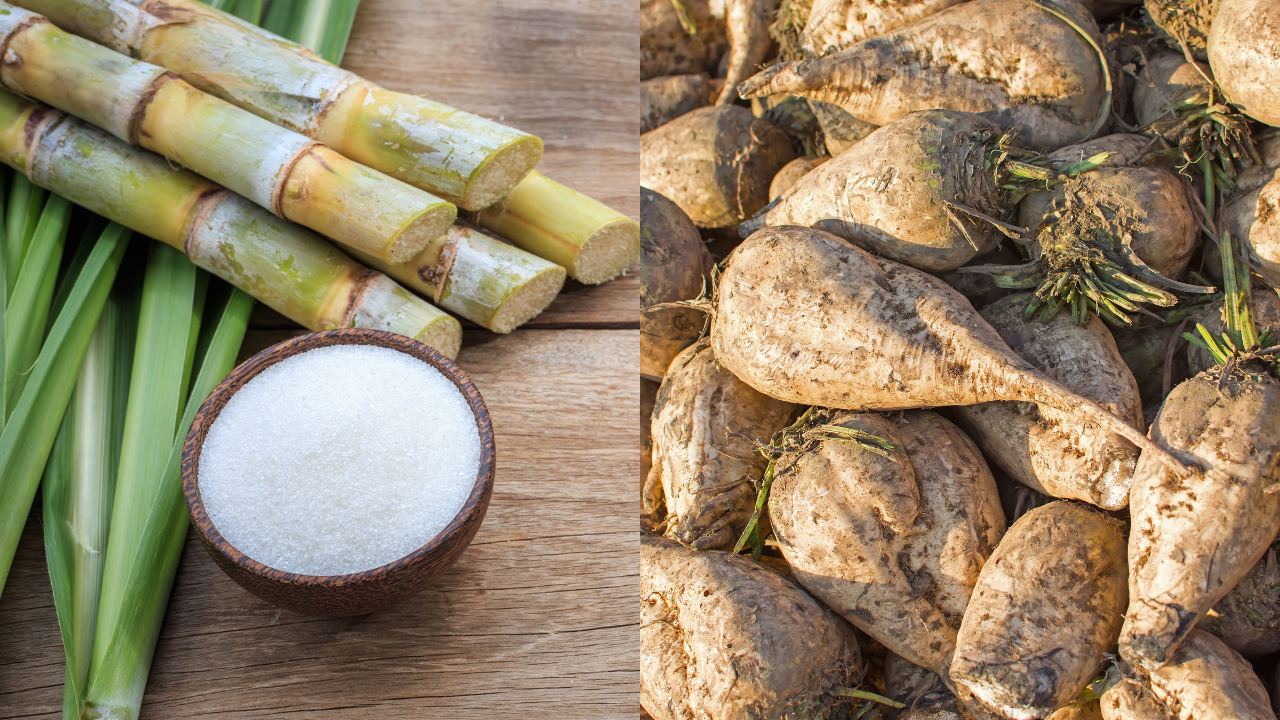Learning about beet sugar vs cane sugar can help shoppers decide which matches their preferences better.
Learning about beet sugar vs cane sugar can help shoppers decide which matches their preferences better.
Blog Article
Discover the Uses and Perks of Beet Sugar Vs Cane Sugar in Your Daily Diet Regimen
Exploring the distinct high qualities of beet and cane sugar reveals greater than just their sweetening capacities; it highlights their special impacts on health and wellness and culinary arts. Beet sugar, understood for its subtle taste, is often favored in delicate desserts, whereas cane sugar, with its tip of molasses, adds splendor to durable dishes. Each kind holds its own nutritional profile and glycemic implications, welcoming a much deeper understanding of their roles in a balanced diet regimen and sustainable consumption methods.
Origin and Production Processes of Beet and Cane Sugar

The distinct climates and soil kinds required for expanding sugar beets and sugarcane add to differences in their cultivation techniques and geographical distribution, affecting the business economics and sustainability of their production. beet sugar vs cane sugar.
Nutritional Comparison In Between Beet Sugar and Cane Sugar
Regardless of stemming from various plants, beet sugar and cane sugar are nutritionally very similar, both primarily being composed of sucrose. Each provides about 4 calories per gram, equating to about 16 calories per teaspoon. Structurally, both sugars are made up of around 99.95% sucrose, with marginal amounts of other substances like wetness and trace element, which do not considerably change their nutritional profiles.

Ultimately, when choosing in between beet sugar and cane sugar based on dietary web content alone, both offer identical benefits and downsides as they are essentially forms of the very same molecule-- sucrose, providing fast power without various other nutrients.
Effect On Wellness: Glycemic Index and Caloric Material
Exploring additionally right into the effects of beet sugar and cane sugar on wellness, it is very important to consider their glycemic index and caloric material. Both sugars are identified as sucrose, which includes sugar and fructose. This composition leads them to have a similar effect on blood glucose degrees. The glycemic index (GI) of both beet and cane sugar is around 65, categorizing them as high-GI foods, which can cause fast spikes in blood sugar degrees. This is an important element for try this site people taking care of diabetes or those trying to maintain their energy levels throughout the day.
Each type of sugar has around 4 calories per gram, making their calorie content matching. For those keeping an eye on calorie consumption, especially when handling weight or metabolic health conditions, understanding this equivalence is important (beet sugar vs cane sugar). Excessive usage of any type of high-calorie, high-GI food can add to health and wellness concerns such as excessive weight, heart condition, and insulin resistance.
Environmental and Economic Factors To Consider of Sugar Production
Beyond health and wellness impacts, the production of you could try these out beet and cane sugar likewise elevates significant ecological and economic problems. Sugar beet cultivation has a tendency to need cooler environments and has a lower geographical footprint contrasted to sugar cane, which flourishes in exotic areas.
Additionally, using pesticides and fertilizers in both beet and cane sugar cultivation can result in soil destruction and air pollution, further influencing biodiversity and neighborhood water bodies (beet sugar vs cane sugar). The option between cultivating sugar beet or cane commonly rests on neighborhood ecological problems and financial variables, making the sustainability of sugar production a complex problem
Culinary Applications and Flavor Differences
While the environmental and economic elements of sugar production are undoubtedly significant, the selection in between beet and cane sugar also affects cooking applications and flavor accounts. Beet sugar, obtained from the sugar beet address plant, is known for its remarkably neutral taste.
Walking cane sugar, extracted from sugarcane, usually keeps molasses traces, which give a distinct splendor and deepness. The minor variation in dampness web content between beet and cane sugar can influence the texture and consistency of meals, making cane sugar a preferred option for certain dishes that profit from its special properties.

Verdict
To conclude, both beet and cane sugar have distinct origins and manufacturing procedures, using similar nutritional accounts with slight distinctions in sodium material and taste. While their influence on wellness, particularly relating to glycemic index and calories, is comparable, the selection in between them typically steams down to ecological, financial aspects, and specific cooking requirements. Recognizing these facets can assist customers in making educated decisions that align with their health objectives and flavor preferences.
Report this page